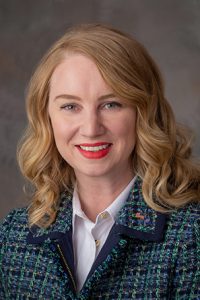Cloture attempt on SNAP eligibility change fails
Senators rejected an attempt March 27 to force a first-round vote on a bill that would remove a lifetime ban on food assistance eligibility for individuals with past drug felonies.

Under current state law, an individual is ineligible for SNAP benefits in Nebraska if he or she has three or more felony convictions for the possession or use of a controlled substance or has been convicted of a felony involving the sale, distribution—or intent to sell or distribute—a controlled substance.
A person with one or two felony convictions for possession or use of a controlled substance is eligible only if he or she is participating in or has completed a state-licensed or nationally accredited substance abuse treatment program since the date of conviction.
As introduced, LB169, sponsored by Omaha Sen. Megan Hunt, would remove that ban and would apply the treatment requirement to individuals with three or more possession or use convictions.
Hunt offered an amendment that would limit the bill further to include only individuals with one or two convictions for possession or use who have completed their sentence and either have completed or are serving a term of parole, probation or post-release supervision.
Hunt said removing eligibility for individuals with convictions for distribution was a compromise that she was willing to make in order to gain support for the proposal.
“A person under this amendment would be ineligible for SNAP—would not be able to get it—if they have three or more felony convictions for possession or use or if they have been convicted of a felony for distribution,” Hunt said. “This is a much more conservative [version] than the bill I originally brought.”
Omaha Sen. Sara Howard supported the bill and the amendment. Drug treatment is a condition of parole and probation, she said, and the amended bill would allow those services to be tailored to an individual’s needs.
“I think if people are sick and there is something we can do to help them, and it doesn’t cost us anything … why wouldn’t we help them?” Howard said.
Kearney Sen. John Lowe opposed the bill. He said there is plenty of work in Nebraska for individuals who return from prison and that former drug felons who dedicate themselves can turn their lives around without the state “suppressing” them with government benefits.
“Your actions and your behaviors cause consequences,” Lowe said.
After six hours of debate spanning several days, Hunt filed a motion to invoke cloture, or cease debate and vote on the bill. The motion failed on a vote of 28-16. Thirty-three votes were needed.
A failed cloture motion results in debate on a bill ceasing for the day. LB169 is unlikely to be placed on the agenda again this session.


